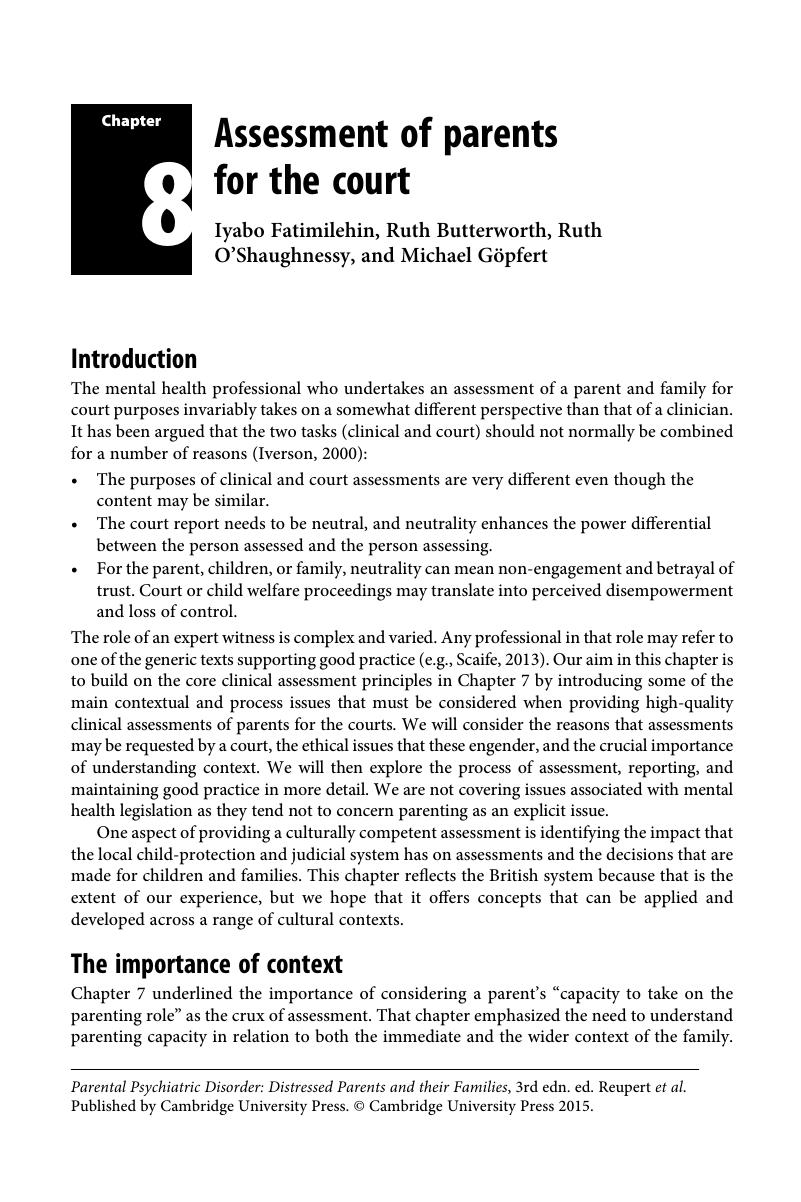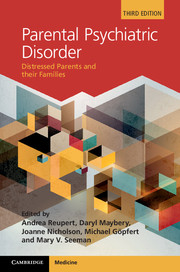Book contents
- Parental Psychiatric DisorderDistressed Parents and Their FamiliesThird edition
- Parental Psychiatric Disorder
- Copyright page
- Contents
- Contributors
- Preface
- Section 1 Fundamental issues
- Section 2 Comprehensive assessment
- Chapter 7 Assessment and formulation of parenting
- Chapter 8 Assessment of parents for the court
- Chapter 9 Thinking about children of parents with mental illnesses as a form of intergenerational dialog and practice
- Chapter 10 Parental diagnosis and children’s outcomes
- Section 3 Specific disorders: the impact on children, parenting, and family relationships
- Section 4 Child, parent, and family interventions
- Section 5 Building workforce, organizational, and community capacity
- Index
- References
Chapter 8 - Assessment of parents for the court
from Section 2 - Comprehensive assessment
Published online by Cambridge University Press: 05 July 2015
- Parental Psychiatric DisorderDistressed Parents and Their FamiliesThird edition
- Parental Psychiatric Disorder
- Copyright page
- Contents
- Contributors
- Preface
- Section 1 Fundamental issues
- Section 2 Comprehensive assessment
- Chapter 7 Assessment and formulation of parenting
- Chapter 8 Assessment of parents for the court
- Chapter 9 Thinking about children of parents with mental illnesses as a form of intergenerational dialog and practice
- Chapter 10 Parental diagnosis and children’s outcomes
- Section 3 Specific disorders: the impact on children, parenting, and family relationships
- Section 4 Child, parent, and family interventions
- Section 5 Building workforce, organizational, and community capacity
- Index
- References
Summary

- Type
- Chapter
- Information
- Parental Psychiatric DisorderDistressed Parents and their Families, pp. 74 - 84Publisher: Cambridge University PressPrint publication year: 2015



